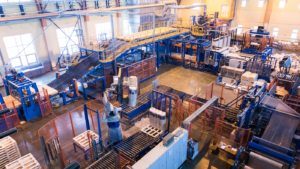
The disruption between age and stage in the workplace.
Is there a disruption between age and stage in the modern workplace?
The traditional workplace
In the past, there was a clear distinction between age and stage in the workplace. Younger employees were expected to learn from their more experienced counterparts, and promotions were based on seniority. But with the rapid pace of technological advancement and the changing dynamics of the workforce, this traditional model is being disrupted. Today younger workers are often more proficient with technology and digital tools, which can make them better suited to certain tasks. As a result, younger employees are increasingly being called upon to mentor and train their older colleagues.
Embracing change in the modern workplace
The idea of younger workers mentoring older staff may seem counterintuitive at first glance, but it makes perfect sense in today’s fast-paced, technology-driven workplace. Take Gen Z for example, this generation grew up with technology and are often more adept at using it. They are more likely to have experience with newer technologies and trends, such as social media and mobile apps. This knowledge, experience and understanding can help businesses stay competitive.
Despite these advantages, there are still some challenges to implementing a model of younger workers mentoring older staff. One of the biggest challenges is overcoming the perception that age equals experience. Many older workers may feel that they have nothing to learn from younger colleagues. They may also feel that younger workers lack the necessary experience to be effective mentors.
Implementing a model of reverse mentoring
To overcome this perception, it is important to create a culture of learning and collaboration in the workplace. This can involve providing opportunities for older workers to learn from younger colleagues, such as through training sessions or job shadowing programs. It can also involve encouraging younger workers to seek out the knowledge and expertise of their more experienced colleagues.
Another key to making this model work is to ensure that both younger and older workers feel valued and respected. This can involve creating a mentoring program that is inclusive and open to all employees, regardless of age or experience level. It can also involve recognising the contributions of all employees and creating a culture of appreciation, reward and gratitude.
The disruption between age and stage in the workplace is a sign of the changing dynamics of the modern workforce. While there may be challenges to implementing this model, creating a culture of collaboration can help to overcome them and ensure that all employees feel valued. By embracing this disruption, businesses can stay competitive and adapt to the changing needs of the modern workplace.
Insights & Resources.
Looking for a Job?
Every day we match thousands of talented individuals with temporary and permanent jobs. We have opportunities available across the UK, from warehouse operatives to legal secretaries, temporary, contract, or permanent.
Searching for staff?
We offer 360° recruitment services in one solution. As multi-sector recruitment experts, we have panoramic views of the industry and the markets in which we operate.
Your local office.
We have hiring hubs located across the UK; from Belfast to London; Dundee to Taunton. But we don’t let geography confine us. Our expert teams use industry-leading technology to reach candidates all over the country and beyond.





